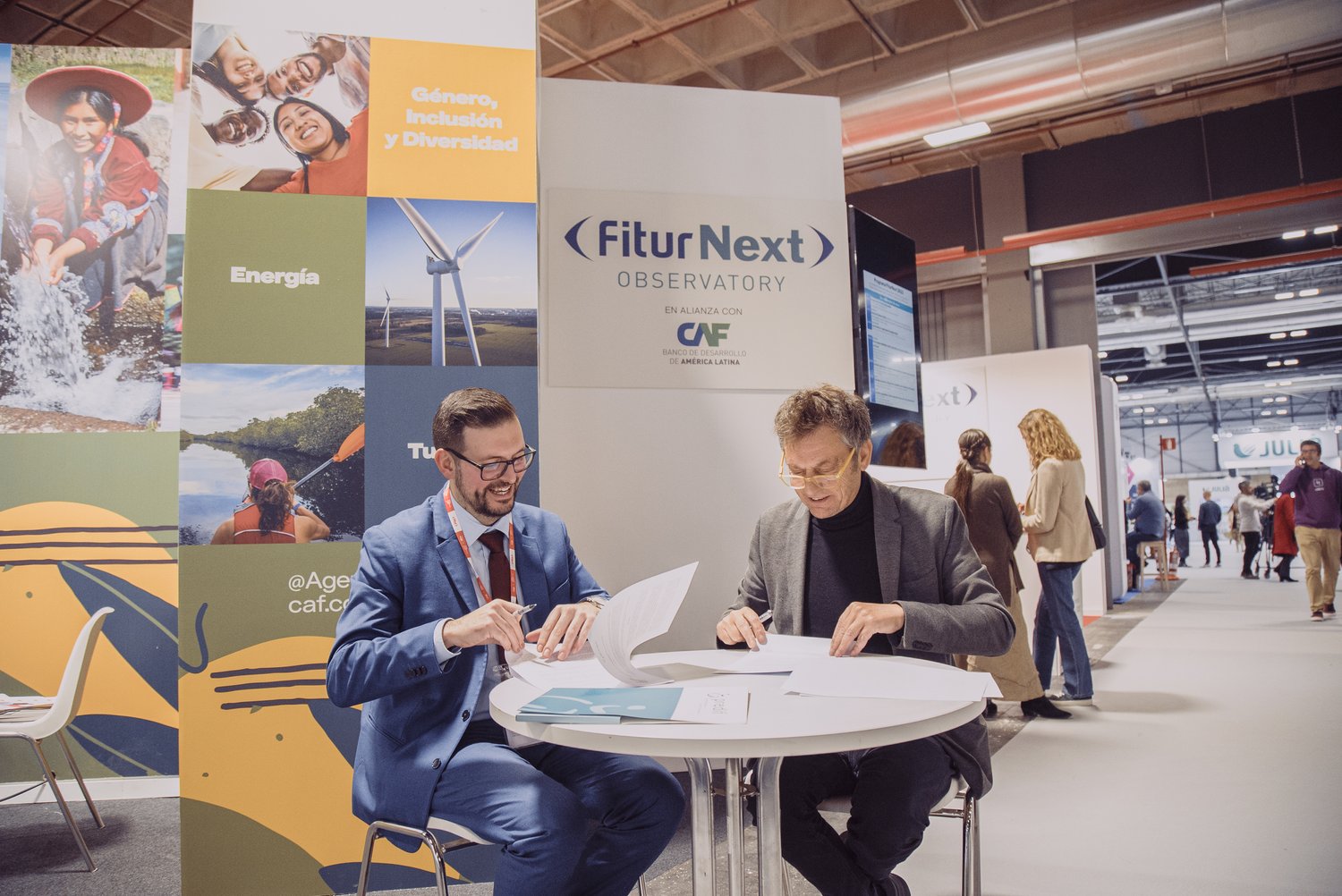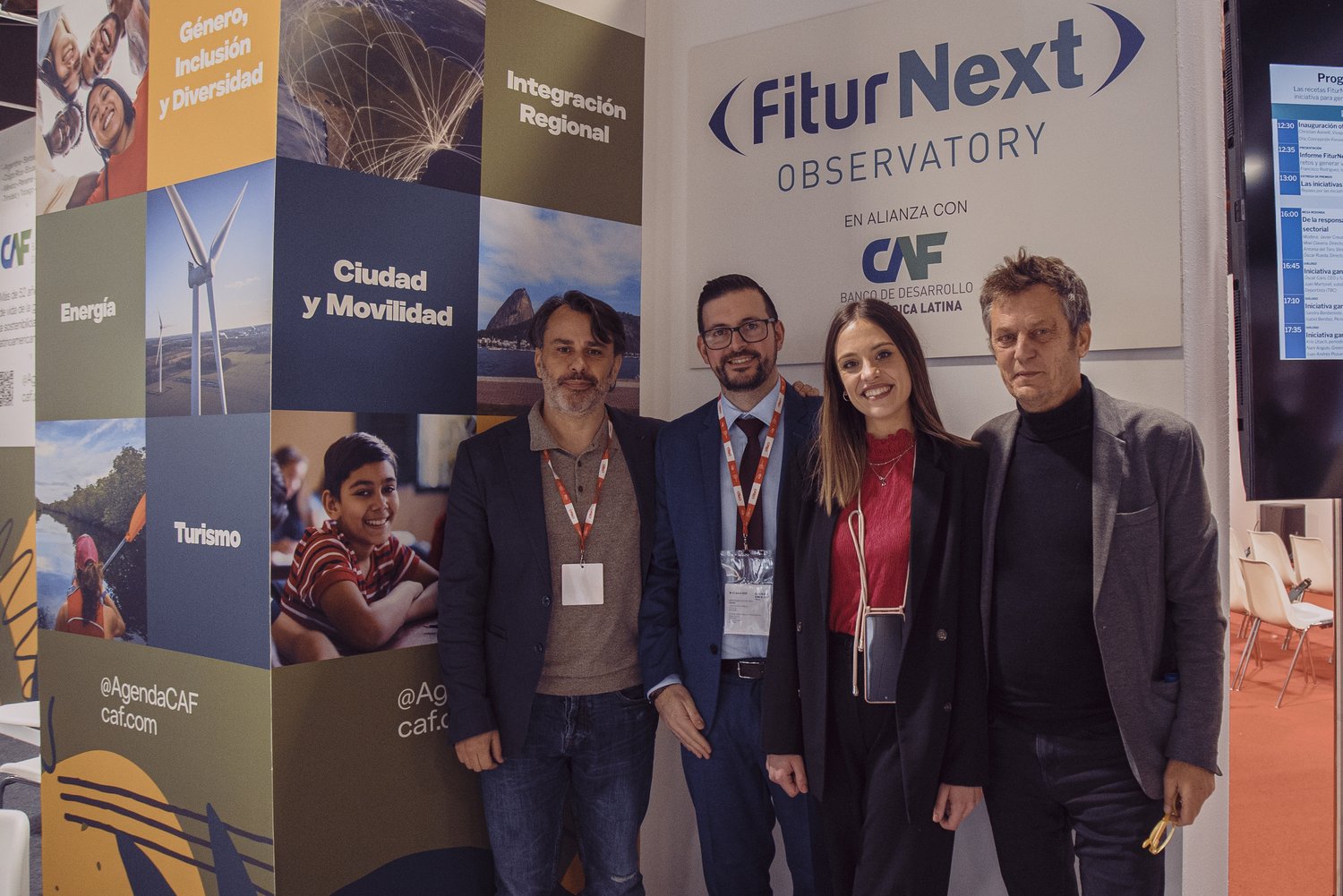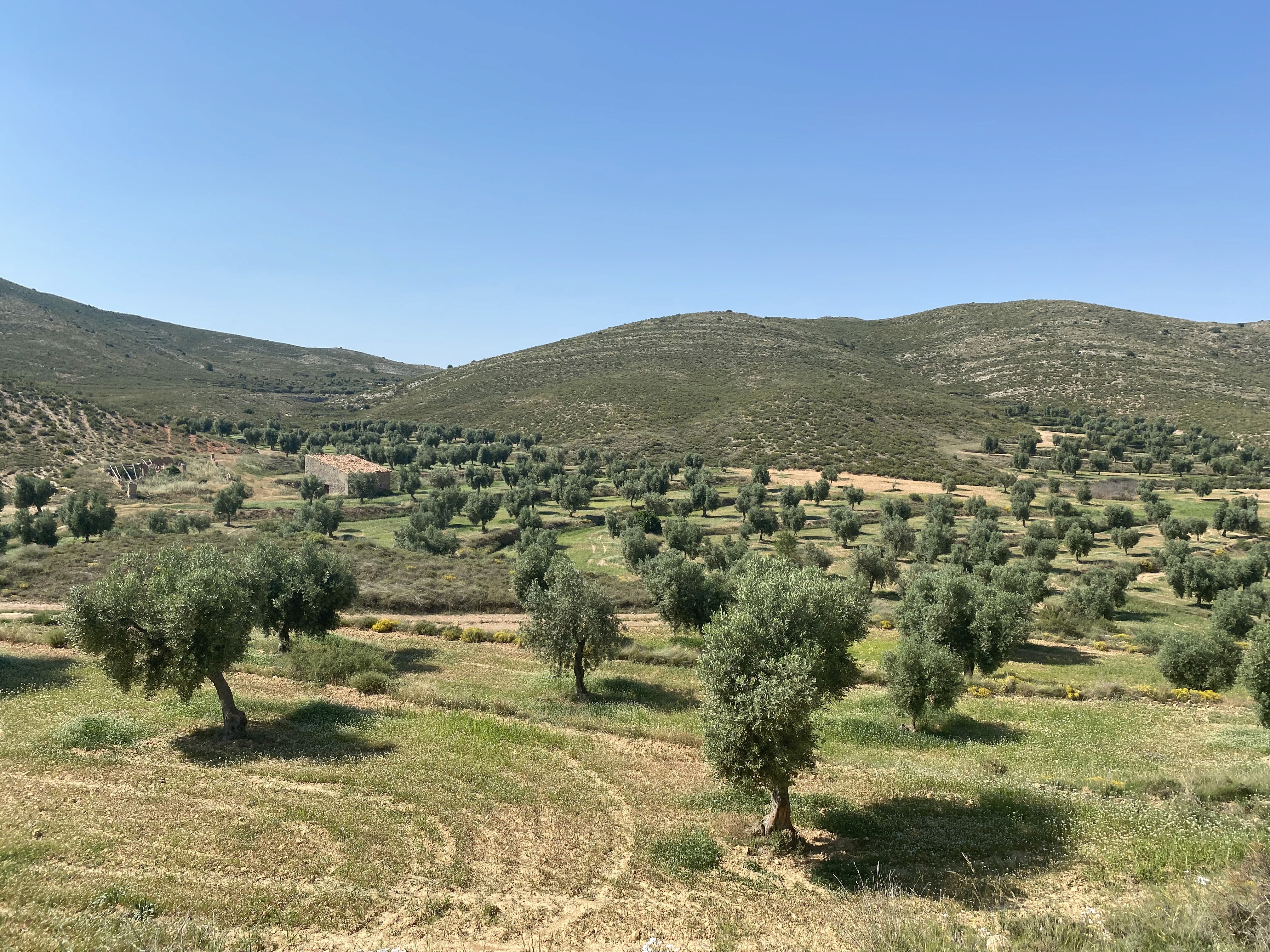Regenerative tourism
Regenerative tourism
Accessibility in Tourism: An Ongoing Challenge
Accessibility in Tourism: An Ongoing Challenge
25 de enero de 2023


By Sandra Campos, Consultant specialized in tourism. (Original publication in Spanish)
Tourism is commonly referred to as the happiness industry. Engaging in leisure, experiencing new sensations, or discovering new destinations and cultures is already a necessity for many.
However, the intangible nature of tourism, the impossibility of evaluating the different elements that make up our trip before enjoying them, and the journey to an unknown or unfamiliar environment create uncertainty.
This uncertainty, although common to any traveler, is heightened in people with access needs, making tourism or universal accessibility, understood not only as the removal of physical, sensory, or communication barriers, but as the creation of spaces, products, and services that can be enjoyed by the entire population regardless of their abilities, a necessary characteristic of any environment.

Specifically, the World Health Organization estimates that 15% of the global population (about one billion people) have some form of disability and with it, different access needs, a figure that has been rapidly increasing in recent years due to high negative demographic rates, increased life expectancy, and the growing chronic diseases linked to lifestyle. In Spain alone, the lack of a truly accessible tourism industry means that approximately four million people have problems when traveling, due to factors such as the presence of multiple physical barriers, lack of knowledge and training in inclusion, or the scarce existence of universal design elements.
Therefore, as part of the commitment from FiturNext at the last 2022 edition on how tourism can contribute to achieving a more accessible society, we have emphasized the need to make accessibility a permanent challenge. This was also the title of the dialogue held with one of the winning entities from that edition. Miguel Carrasco, Director of the area of tourism and universal accessibility of Predif, returned to FiturNext 2023 to offer us various learnings for achieving an accessible, sustainable, and quality tourism industry.
Three key points were highlighted in this conversation: the importance of awareness as the foundation of a truly inclusive society, the training of future professionals in the sector, and the continuity of accessibility across the different elements that make up the travel experience.
First key point, awareness
Essential for achieving real inclusion in society. Educating in equality of rights, access, and opportunities, understanding and conveying the needs presented by each person considering their capabilities, and spreading awareness of the diverse existing realities become the ideal vehicle for constructing an inclusive society.
Second key point, training
In tourism, primarily composed of services, the human factor takes on special relevance. Therefore, training in accessibility for future professionals in the sector is essential, as it plays a key role in the tourist experience. However, there is a limited training offer in this area, and there are few specific qualifications available, both at the university level and vocational training. Moreover, most of the courses offered are focused on other specialties that, while necessary, have less crossover, such as urban planning or architecture, meaning that the human value within the tourism industry largely does not know the needs of people with disabilities, nor how to approach or treat them.
Therefore, knowing and understanding not only the needs, consumption habits, and perceptions of these individuals, but also the various regulatory and technical aspects of accessibility, is fundamental for a comprehensive quality industry that increases the competitiveness of different destinations and is supported by social, sustainable development for all.
Third key point, the value chain of accessible tourism
We must understand this concept from a broad perspective, extending it to all elements of the value chain that make up the travel experience, so as to enable the arrival, itinerancy, enjoyment of different experiences, and return to origin for any individual without distinction, fostering universal participation. We could imagine a chain composed of different links, where each link belongs to each of the stages or moments of the journey. Thus, accessibility must be present in each link, from the origin of the tourist with the trip planning, to their return once finished, passing through the different stages or phases.
This is a necessary but insufficient condition. Accessibility must also be inherent to the relationship practiced among the different links or elements of the journey, so that the entirety of the experience can happen without breaking the flow of accessibility at any time. Otherwise, the emergence of a discontinuity in this accessible flow generates different detriments, not only for these travelers and residents but also for the quality standard of the destination.
These keys, along with everything learned during the last edition of FiturNext and the new steps taken by Ideas for Change towards achieving a more inclusive and accessible society, have led us to form an alliance with the Predif Foundation, one of the major foundations of the associative movement of people with disabilities in Spain, whose work revolves around generating a universal tourism industry.
Alongside them, and with the signing of this new agreement, a new stage of collaboration, commitment, and transmission of knowledge and information is born, where adding together means growing and growing equates to achieving a truly accessible and inclusive society.
By Sandra Campos, Consultant specialized in tourism. (Original publication in Spanish)
Tourism is commonly referred to as the happiness industry. Engaging in leisure, experiencing new sensations, or discovering new destinations and cultures is already a necessity for many.
However, the intangible nature of tourism, the impossibility of evaluating the different elements that make up our trip before enjoying them, and the journey to an unknown or unfamiliar environment create uncertainty.
This uncertainty, although common to any traveler, is heightened in people with access needs, making tourism or universal accessibility, understood not only as the removal of physical, sensory, or communication barriers, but as the creation of spaces, products, and services that can be enjoyed by the entire population regardless of their abilities, a necessary characteristic of any environment.

Specifically, the World Health Organization estimates that 15% of the global population (about one billion people) have some form of disability and with it, different access needs, a figure that has been rapidly increasing in recent years due to high negative demographic rates, increased life expectancy, and the growing chronic diseases linked to lifestyle. In Spain alone, the lack of a truly accessible tourism industry means that approximately four million people have problems when traveling, due to factors such as the presence of multiple physical barriers, lack of knowledge and training in inclusion, or the scarce existence of universal design elements.
Therefore, as part of the commitment from FiturNext at the last 2022 edition on how tourism can contribute to achieving a more accessible society, we have emphasized the need to make accessibility a permanent challenge. This was also the title of the dialogue held with one of the winning entities from that edition. Miguel Carrasco, Director of the area of tourism and universal accessibility of Predif, returned to FiturNext 2023 to offer us various learnings for achieving an accessible, sustainable, and quality tourism industry.
Three key points were highlighted in this conversation: the importance of awareness as the foundation of a truly inclusive society, the training of future professionals in the sector, and the continuity of accessibility across the different elements that make up the travel experience.
First key point, awareness
Essential for achieving real inclusion in society. Educating in equality of rights, access, and opportunities, understanding and conveying the needs presented by each person considering their capabilities, and spreading awareness of the diverse existing realities become the ideal vehicle for constructing an inclusive society.
Second key point, training
In tourism, primarily composed of services, the human factor takes on special relevance. Therefore, training in accessibility for future professionals in the sector is essential, as it plays a key role in the tourist experience. However, there is a limited training offer in this area, and there are few specific qualifications available, both at the university level and vocational training. Moreover, most of the courses offered are focused on other specialties that, while necessary, have less crossover, such as urban planning or architecture, meaning that the human value within the tourism industry largely does not know the needs of people with disabilities, nor how to approach or treat them.
Therefore, knowing and understanding not only the needs, consumption habits, and perceptions of these individuals, but also the various regulatory and technical aspects of accessibility, is fundamental for a comprehensive quality industry that increases the competitiveness of different destinations and is supported by social, sustainable development for all.
Third key point, the value chain of accessible tourism
We must understand this concept from a broad perspective, extending it to all elements of the value chain that make up the travel experience, so as to enable the arrival, itinerancy, enjoyment of different experiences, and return to origin for any individual without distinction, fostering universal participation. We could imagine a chain composed of different links, where each link belongs to each of the stages or moments of the journey. Thus, accessibility must be present in each link, from the origin of the tourist with the trip planning, to their return once finished, passing through the different stages or phases.
This is a necessary but insufficient condition. Accessibility must also be inherent to the relationship practiced among the different links or elements of the journey, so that the entirety of the experience can happen without breaking the flow of accessibility at any time. Otherwise, the emergence of a discontinuity in this accessible flow generates different detriments, not only for these travelers and residents but also for the quality standard of the destination.
These keys, along with everything learned during the last edition of FiturNext and the new steps taken by Ideas for Change towards achieving a more inclusive and accessible society, have led us to form an alliance with the Predif Foundation, one of the major foundations of the associative movement of people with disabilities in Spain, whose work revolves around generating a universal tourism industry.
Alongside them, and with the signing of this new agreement, a new stage of collaboration, commitment, and transmission of knowledge and information is born, where adding together means growing and growing equates to achieving a truly accessible and inclusive society.


